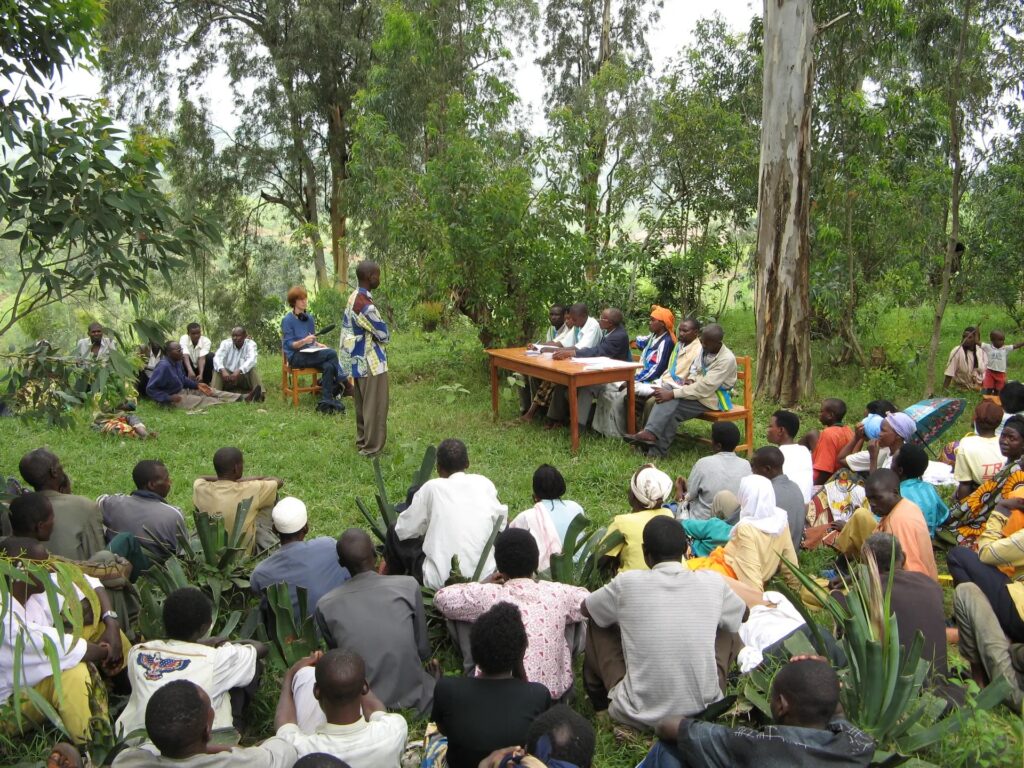- About Ramapo
- Academics
- Admissions & Aid
- Student Life
- Athletics
- Alumni
- Arts & Community
- Quick Links
- Apply
- Visit
- Give
Kwibuka 30, Panel 12
Gacaca Court in session in Rwanda.
Gacaca Courts
After upwards of 100 days of the radical Hutu movement that killed up to one million Tutsi, the Rwanda Patriotic Front ended the genocide. Many Tutsi wanted justice for their family members and loved ones who were murdered during this atrocity, so the government adopted an alternate means to bring justice to the ones that lost their lives in 1994. The new system was called Gacaca, and it was rooted in a pre-colonial dispute resolution mechanism which was modified to address the crime of genocide. Gacaca began in the early 2000s to expedite justice and ceased functioning in 2012.
Gacaca courts were run by elected lay judges. Trials took place in communities. First, eyewitnesses and community members testified as to whether a person (Hutu) was directly involved or assisted in the genocide. Next, the community gathered in a circle with a trusted person to direct the trial. Finally, the accused had two options. They could confess to the crimes they had perpetrated and, thereby, offer closure to survivors and the relatives of victims. To that end, they would even help families identify or find their loved ones’ remains. The accused would apologize and admit that their actions had been wrong and unlawful. Alternatively, the accused could insist upon and seek to demonstrate their innocence, sometimes offering information valuable for finding justice.
Every justice system has flaws, as do all attempts to ameliorate the lasting legacies of genocide. The government has reinvented itself to benefit all the citizens in the country. Today, the country is thriving and developing more effectively than other countries. The Gacaca Courts offered opportunities to those survivors who so desired to gain a measure of peace and to begin rebuild their lives. As survivors’ experiences varied, so too did their attitudes towards the Gacaca system.
Quick Links
The Justice and Reconciliation Process in Rwanda
The Legacy of Rwanda’s Community-Based Gacaca Courts
Bibliography
Sharp, Jeb. “Part II: Rwanda’s Gacaca Courts.” The World. February 14, 2007.
“The Closing of the Gacaca Courts and the Implications for Access to Justice in Rwanda.” ISS Africa. February 28, 2012.
Photo Source
Sharp, Jeb. 2007. “Part II: Rwanda’s Gacaca Courts.” The World via PRX. February 14, 2007.
Copyright ©2025 Ramapo College Of New Jersey. Statements And Policies. Contact Webmaster.


Follow Us!